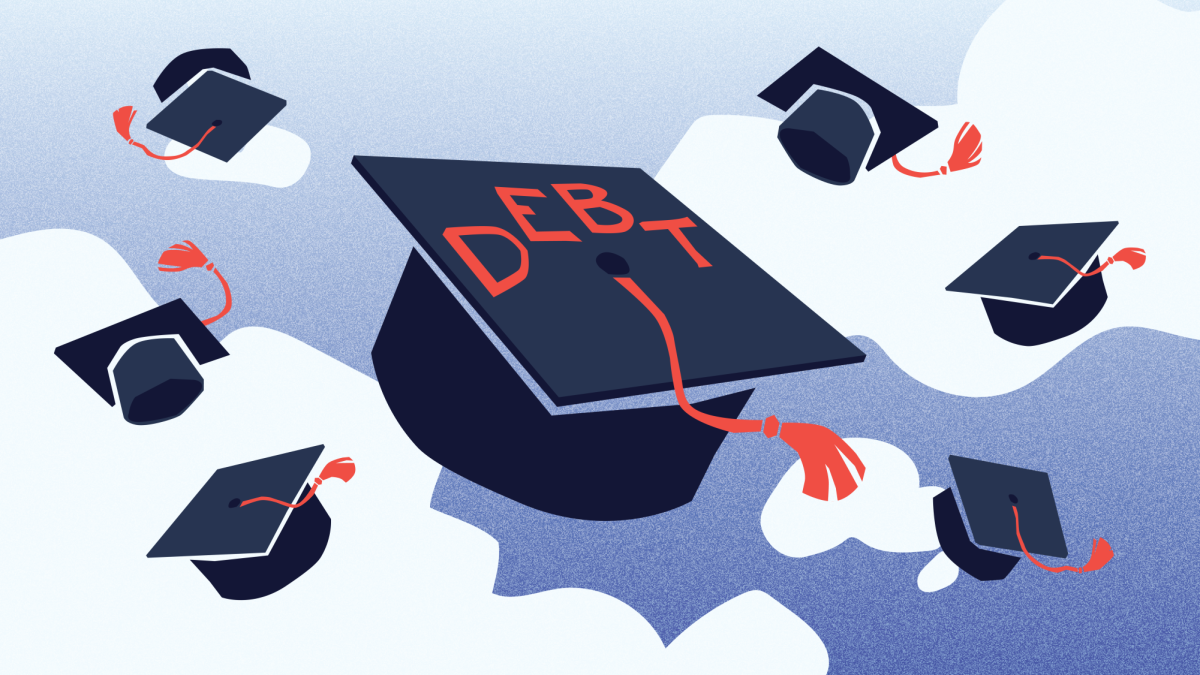Recent U.S. K-12 math and reading score deterioration, college enrollment declines and educational disparities are concerning. It is more important than ever that we encourage education for all Americans.
These failures coupled with state governments’ disinvestment in education are disappointing. The sour truth is that our current system does not value education enough. The government must play its part in invigorating U.S. education. They must also combat the inequality, debt and other harms that are exacerbated by their disinvestment in education.
State Disinvestment
From 1980 to 2020, the cost of tuition, fees and housing for undergraduates has increased by 169%. Compared to tuition costs in 1970, public university students must now work six times more hours to afford tuition. If college was ever affordable, it certainly isn’t anymore.
Universities are frequently blamed for these rising tuition costs. State governments, however, have also contributed to tuition increases.
Public colleges in the 1970s received about 75% of their funding from the state. By 2003, states contributed only 32% of college funding, and by 2012 they contributed only 23%. Despite some recent improvements in state funding, the overall trend of disinvestment in education is undeniable.
With a loss in state funding, the cost of college falls more heavily upon college students. State governments stand by as students are overwhelmed with increasing tuition prices and debt. Tuition increases not only harm students, but also contribute to declines in college enrollment. This is a recipe for disaster.
While state governments may claim to value education, their actions reveal a far different reality. Disinvestment in colleges and recent decreases in K-12 spending that have occurred in states like Utah are concerning. When states decrease funding, they actively create barriers to education. They discourage Americans from pursuing higher education and prevent them from succeeding in K-12 settings.
Rather than continuing to disinvest in education, state governments must encourage education and rectify the harms caused by their disinvestment. Whether this occurs through increasing state funding, or finding other creative solutions, states are obligated to get working.
Education Inequality
Education should provide all students with an equal opportunity to succeed. Our current system does just the opposite.
Colleges today breed inequality, especially selective colleges. The majority of people with bachelor’s degrees come from families who live above the median income. Competitive Ivy League colleges also prioritize admitting wealthier students, even when middle and low-income students are just as qualified. In other words, wealthier students have more access to the opportunities and benefits that colleges provide. Beyond college, public schools in wealthy areas receive much more state and local funding than in poor areas.
Even with financial aid, many low-income students cannot afford college. When low-income students are a lower priority, and when their financial aid is inadequate, they miss out on the increased earnings and other benefits associated with college. In this system the rich stay rich and the poor stay poor.
When state governments disinvest in education — and tuition costs subsequently rise — they add fuel to the fire of inequality. The decision of state governments to lower education funding is deplorable. So long as favoritism towards wealthy students goes unchecked, and the government denies low-income students of necessary financial aid, they fail Americans.
Increasing spending can improve education, especially for low-income students. If state governments increase funding, they have an opportunity to rectify the harms caused by their disinvestment in education.
Racial Inequality
The history of racism in the U.S. means that people of color are often from low-income families. They are more likely to live in poor areas that receive less public school funding. Government funding decreases that raise college tuition will also harm them disproportionately. There are a plethora of other examples where students of color are especially disadvantaged in education.
The government shows favoritism towards wealthy students and white students, while neglecting those students who need them the most. This is completely unethical.
The government must provide financial help for low-income students and students of color. This is a great way to combat the inequality that has been exacerbated by education disinvestment and favoritism.
Many might worry that an increase in government spending for education would be costly. In truth, the government spends $82,000 less on college graduates than on those without college degrees. This is because they are less reliant on government programs. With some patience, increasing funding for education can seriously pay off.
The government has disinvested in education, failed to provide sufficient financial aid and prioritized wealthy — and white — school districts. By failing to acknowledge the importance of education for everyone, the government has exacerbated inequality. Amends must be made.
The Value of Education
The U.S. government and families pour a fortune of money into healthcare, incarceration and social programs that combat poverty. Investing in education can lessen the demand for many of these expensive services in the first place. Educated citizens are less likely to be incarcerated and impoverished. College graduates are also healthier. Improving access to education could save the government — and taxpayers — a lot of money, and would simultaneously improve society.
Education fosters innovation, creativity and productivity. This is incredibly beneficial to the economy and well-being of society. Creativity and innovation are especially important if we hope to solve pressing modern issues like climate change. We need smart solutions to challenging problems, and an educated populace is far more equipped to meet that demand.
If state and federal governments continue to disinvest in education, this is nothing short of disappointing and idiotic. Improving education is an opportunity to change the world for the better. It’s about time that the government invests in education.














